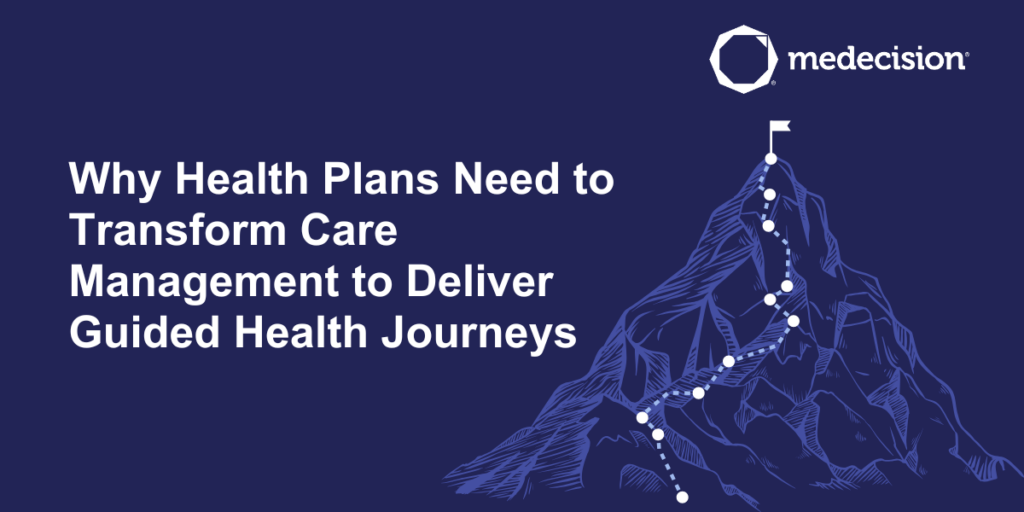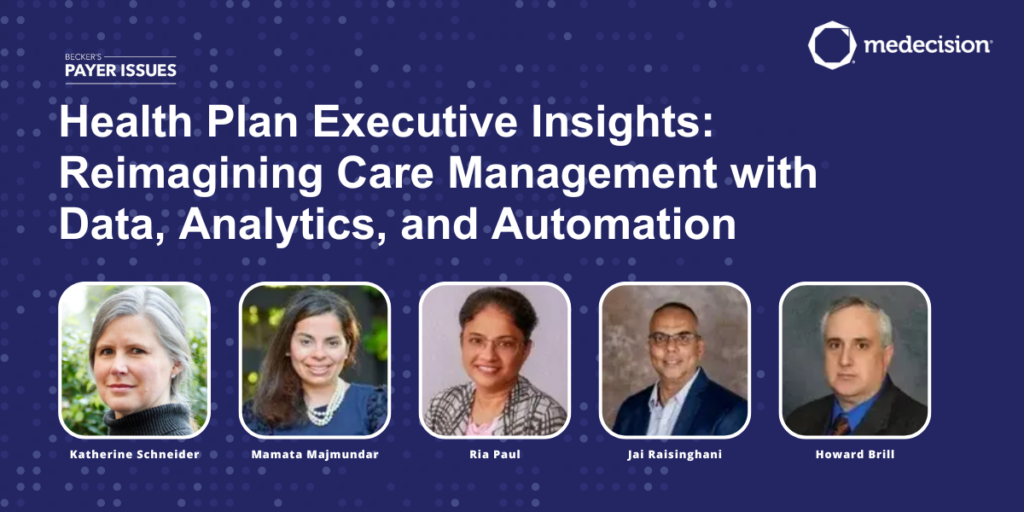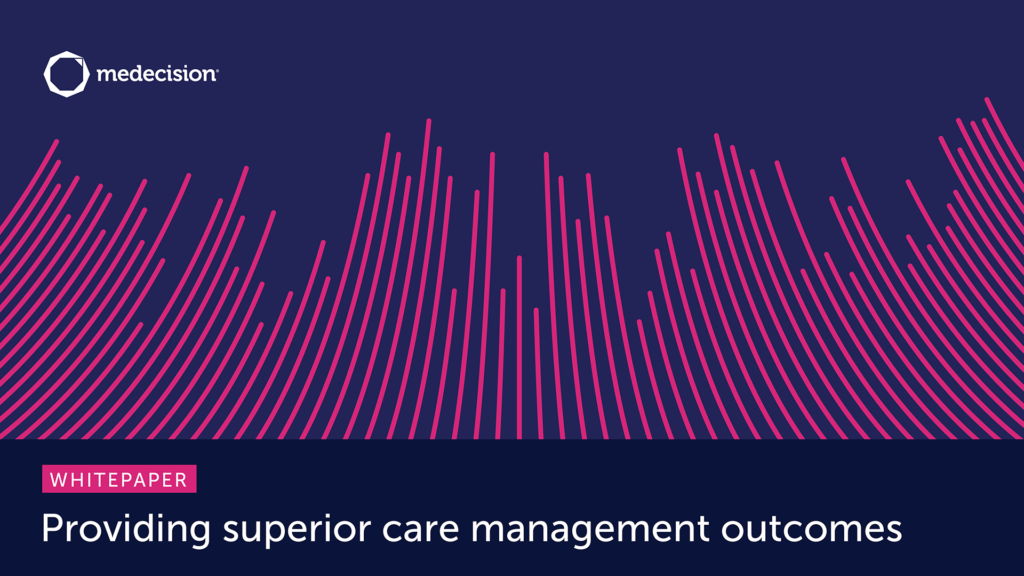
While health plan executives are increasingly recognizing the need to transform care management (CM) and engagement initiatives, consultancy Oliver Wyman explains that member-centric health plan models include data related to medical care, behavioral health, pharmacy, social determinants, and other datasets.
Medecision research, in fact, shows that health plans are already collecting a wide range of those member data types. But results from the Medecision survey of more than 50 health plan leaders also highlight the pressing need to integrate more of those information sources into CM workflows and engagement initiatives.
As a result of lacking integration, health plans are operating with multiple fragmented, disparate information sources. Nearly two-thirds (62%) of Medecision survey respondents say their organization’s access to real-time member data is “somewhat adequate” at best, and only one-quarter (26%) say it is “adequate.”
Guided Health Journeys: The New Frontier in Care Management.
To learn more about the increasing need and urgent opportunities health plans have for transforming CM programs to realize their full potential and earn a return on the investment, read the new Becker’s Payer Issues report, Guided Health Journeys: The New Frontier in Care Management.
Download the Report
“Real-time data is important to identifying when a member has healthcare needs and then acting upon that information immediately,” says Karl Serrao, MD, Chief Medical Officer, Driscoll Health Plan during a Becker’s Payer Issues podcast.
To enable real-time access to data, health plans need to integrate more data sources—admission, discharge and transfer (ADT), claims, pharmacy, lab results, social determinants of health, fitness trackers, remote monitoring, and others—into CM initiatives. That integration will enable CM teams to use the information in real time when health events happen, with the contextual awareness necessary for delivering “intelligent personalization” via multichannel outreach, including sustained messages, nudges, reminders, and educational content. CM teams also need the ability to make adjustments to guided health journeys as new information becomes available.
What’s holding health plans back from expanding CM?
Members accustomed to digital interactions in almost all other aspects of their day-to-day lives now want their health plans to provide digital platforms as well. A survey by the global payment specialist PYMNTS finds that 81% of consumers expressed interest in using a health plan’s digital platform, and 76% who have received test results via digital channels are satisfied with that experience.
 Despite strong consumer demand, health plans are struggling to engage more members. The biggest barrier to expanding CM programs is low member participation, and the most significant challenge to increasing member participation is the lack of tools to effectively engage people in CM initiatives, survey respondents say.
Despite strong consumer demand, health plans are struggling to engage more members. The biggest barrier to expanding CM programs is low member participation, and the most significant challenge to increasing member participation is the lack of tools to effectively engage people in CM initiatives, survey respondents say.
Among the health plan leaders who participated in the Medecision survey, executives indicate that the negative consequences of not transforming CM include: increased utilization and unrealized cost avoidance, poor care quality, disengagement among members that leads to poor outcomes, inadequate therapy or medication adherence, and higher overall costs.
What Health Plans Need to Transform CM
Few CM teams have real-time access to all their data when and where they need it. Seventy percent or more of Medecision survey respondents say their organization lacks real-time access to prescription, social determinants, remote monitoring, fitness tracker, or fax data. Slightly fewer lack real-time access to lab results, ADT, and call center activity, though only about one-quarter (28%) have real-time access to any of their data types.
“Care management has historically been a manual process using claims data that is months old, so that limits the effectiveness,” says Katherine Schneider, MD, MPhil., FAAFP, Chief Medical Officer, Medecision, during a Becker’s Payer Issues webinar. “Now, health plans can leverage a robust data platform that can take in data in real-time from multiple sources, and feed that into care management workflows.”

Integratingall their data types via a data platform and clinical intelligence engine enables health plans to drive better outcomes for members by building targeted approaches based on individual needs, processing vast amounts of data for predictive analytics, creating personalized rules for timely interventions, optimizing workflows with AI and machine learning, and more.
“Leveraging additional data and analytic insights leads to more meaningful, timely, and effective member management,” IDC explains in its report. “Technology such as AI enhances data-driven workflows, collaboration, and hyper-personalized care. It also supports efficiency and effectiveness to bolster the impact of next-generation care management models.”
Further, Medecision research shows health plan leaders expect that transforming care management by building on traditional telephonic models with cutting-edge digital platforms, automation, and AI will enable them to create guided health journeys, engage more members, improve efficiencies, and reduce the technical burden on CM teams.
Conclusion
Health plans are already collecting the data to build contextually aware guided health journeys, but many are not integrating those information sources into CM workflows and engagement initiatives so they can deliver timely interventions when health events happen. To strategically leverage all their data for personalized care approaches, health plans need a data platform and clinical intelligence engine that can integrate multiple data sources, as well as multichannel capabilities to reach members when it matters most in ways they prefer.



About The Author: Clara McLouth
More posts by Clara McLouth